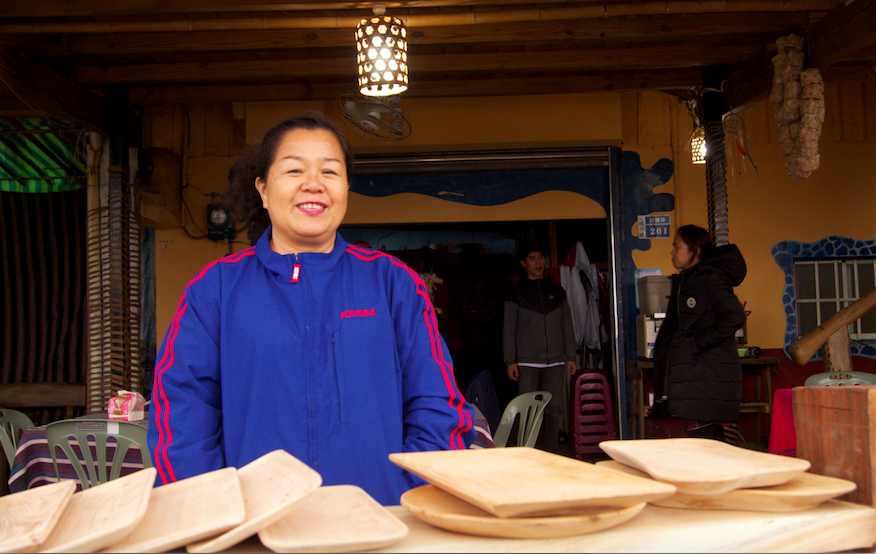In a tropical island like Taiwan, the picturesque landscape comes at a price. Each year in the rainy season between June and October, typhoons can strip entire villages bare. Each time, businesses close, houses are destroyed, the harvest is ruined, and trade halts.
Without the strong sense of community and constant drive to rebuild which seems to have trickled down from generation to generation, Taiwan wouldn’t have much to show for itself today.
Ms. Chen, a 60 year old woman from a small village called Pisirian, embodies that spirit in her every step. Leader of the Amis tribe, she decided to start the PawPaw Drum Ensemble eight years ago, breathing life back into her village by handing its fate over to its children.
“Money doesn’t matter. What we needed was to be noticed. We needed these children to find a place where they belong and see that somehow, they are believed in. Once we have that, everything grows from there.” She pointed towards the children playing in the background, looking into the distance as she talked to me.
Pisirian is one of many villages which gets periodically destroyed by catastrophical typhoons. Each time, children lose parents, families fell apart, shops close, and crashing waves and winds cause immense amounts of natural waste.
Chen’s PawPaw Drum Ensemble is focused on giving children the skills they need to help rebuild a sustainable community in her village and throughout Taiwan. She takes them in during elementary school and provides them with something to do which will stimulate their creativity and maintain a local tradition alive. The community of youths she fosters ‘graduate’ from her oversight able to make themselves a living, pay for university and support their families.
She’ll take in older children or young adults too – dropouts, people with issues of drug abuse, anybody. “Without an education they cannot go anywhere anymore. They need to be able to afford university, they need to be able to pick themselves up on their own feet,” she says.
As part of an ancestral tradition, some children collect waste and wrecked buoys from fisherman and turn them into traditional drums. They learn to sing and dance to their instruments, , and perform for the village in return for a little money. “I wanted to teach future generations that our tradition and culture is beautiful and can still be something important and useful for us,” she says.
Part of what they learn takes advantage of the wreckage to turn the destruction typhoons leave behind into something beautiful. Chen’s children collect the broken driftwood and twigs left behind by crashing waves, and turn them into little goat figurines, to sell for a profit. It’s a symbol of their local area, which used to be home to thousands of goats as the low tide allowed them to cross over from the opposite strip of land.
Chen has been subsidized by the local government, and received a bit of financial support from individuals in the art industry who support what she’s doing. Eight years in, her project is now sturdy enough to be self-sufficient. It’s brought tourism to her village, boosting business and interest in the area.
Now, Chen is ready to retire. She’s restored faith in her village’s past, and in it’s future – reviving appreciation for her people’s ancestral roots in a contemporary way.
Ms. Chen giggles a lot. “We turn garbage into a sellable product,” she says. “We are proof that what might seem useless and lost can always be something beautiful.”

